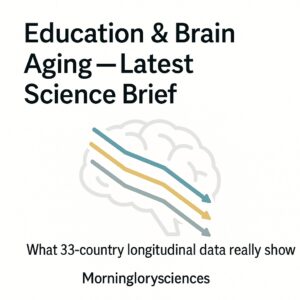New Hypothesis Links Stress, the Brain, and Systemic Aging
In the June 2025 issue of Nature (Vol.642), researchers from Columbia University led by Dr. Martin Picard proposed that senescent cells—those associated with aging—may consume double the energy of normal cells and secrete GDF15, a cytokine that signals this metabolic stress to the brain. The brain, in turn, lowers systemic metabolism as a protective response, potentially contributing to visible signs of aging.
Key Insights
- Senescent cells use twice the energy of younger cells
- GDF15 functions as a “distress signal” to the brain
- The brain enters a systemic “energy-saving mode”
- Psychosocial stress (low status, caregiving) linked to biological aging markers
Implications
- Introduces brain-based regulation into aging theories
- Highlights potential interventions via GDF15 targeting or stress reduction
- Elevates the role of mental health and social structure in healthy aging
Final Note
Our mindset and stress levels may directly impact how we age. This emerging science reminds us that biological aging is not only a molecular phenomenon, but a systemic response involving the brain.
Source
This article is based on “The brain’s role in ageing is starting to become clear,” published in Nature Vol.642, June 19, 2025.





Comments